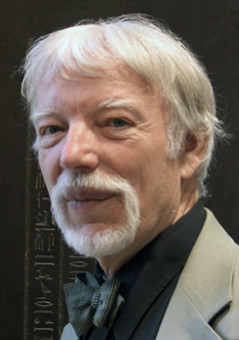
Jan Assmann
Professor Emeritus of Egyptology, University of Heidelberg
Foerster Lectures on the Immortality of the Soul
October 9, 2015 — 4:10 PMAnna Head Alumnae Hall — 2537 Haste Street
About the Lecture The Egyptians believed Pharaoh to be a god on earth who after his death would fly up to heaven and unite with the sun, his father. After the collapse of the Old Kingdom, this idea of royal … Continued
Anna Head Alumnae Hall - 2537 Haste Street Berkeley Graduate Lectures [email protected] false MM/DD/YYYYAbout the Lecture
The Egyptians believed Pharaoh to be a god on earth who after his death would fly up to heaven and unite with the sun, his father. After the collapse of the Old Kingdom, this idea of royal immortality became accessible for non-royal persons but dependent on justification before a divine tribunal, the judgment of the dead. Immortality became a question, not of royalty but of morals. The lecture will investigate the origins and the evolution of these concepts.
About Jan Assmann
Jan Assmann has studied Egyptology and archeology throughout the world and is best known for his research of Ancient Egyptian literature and religion, Egyptian funerary beliefs and practices, and early modern concepts of Egyptian culture (“Egyptomania“). His work reflects on the history of religion, especially the rise of monotheism in the ancient world. Assmann is also recognized for making notable contributions toward the development of the concept of “cultural memory,” shaping it into an exploratory tool capable of illuminating varied aspects of human culture.
Jan Assmann served as Professor of Egyptology at Heidelberg University from 1976 until 2003. In 2005, he was named Honorary Professor of Cultural and Religious Studies at the University of Constance where he continues today. He has also held guest professorships at a number of prestigious universities including Yale University, University of Chicago, Rice University, the Hebrew University of Jerusalem, and the École des Hautes Études en Sciences Sociales, in Paris. From 1966-1967, he was a fellow at the German Archaelogical Institute in Cairo where he also completed his habilitation, the highest academic qualification that can be achieved in Europe, Egypt, and Central Asia. He is a member of the Academy of Sciences and Humanities Heidelberg, the European Academy of Arts and Sciences, and the Academia Europea.